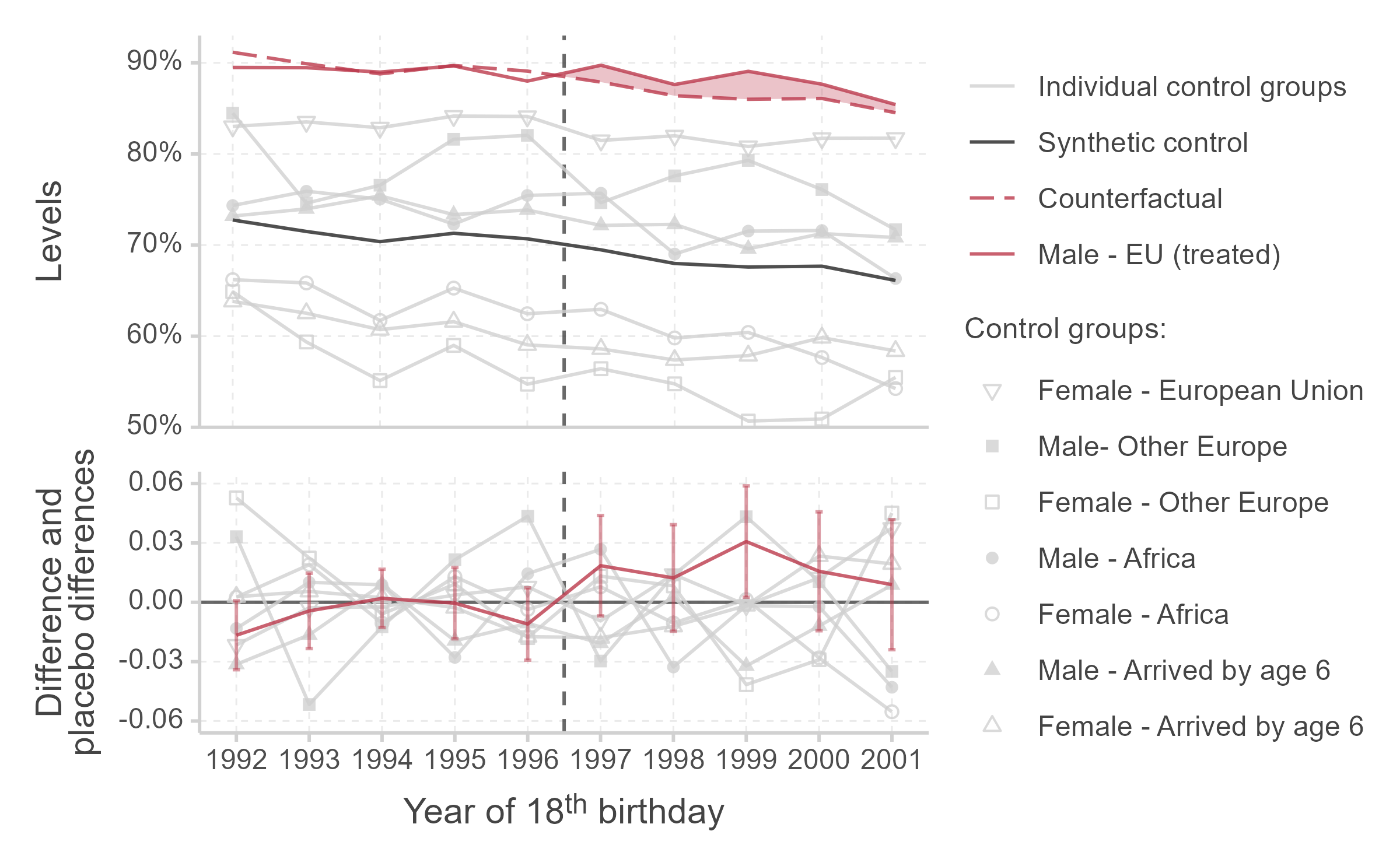To Become or Not to Become French: Conscription, Citizenship, and Labor Market Integration
Abstract
We examine how changing the costs of acquiring citizenship translates into naturalization decisions for second-generation immigrants, and the effect of naturalization on their labor market outcomes. We exploit the abolition of mandatory military service in France as an exogenous reduction in the cost of citizenship for men. In line with the predictions of our theoretical framework, we find that the reform induced a jump in male naturalization rates, entirely driven by European Union citizens. Using a Synthetic Difference-in-Differences, we show that the probability of employment for EU males consequently increased by 1.7 percentage points, through a reduction in inactivity rather than unemployment. We provide suggestive evidence that this effect is mainly driven by an increase in public sector employment and a reduction in self-employment.


